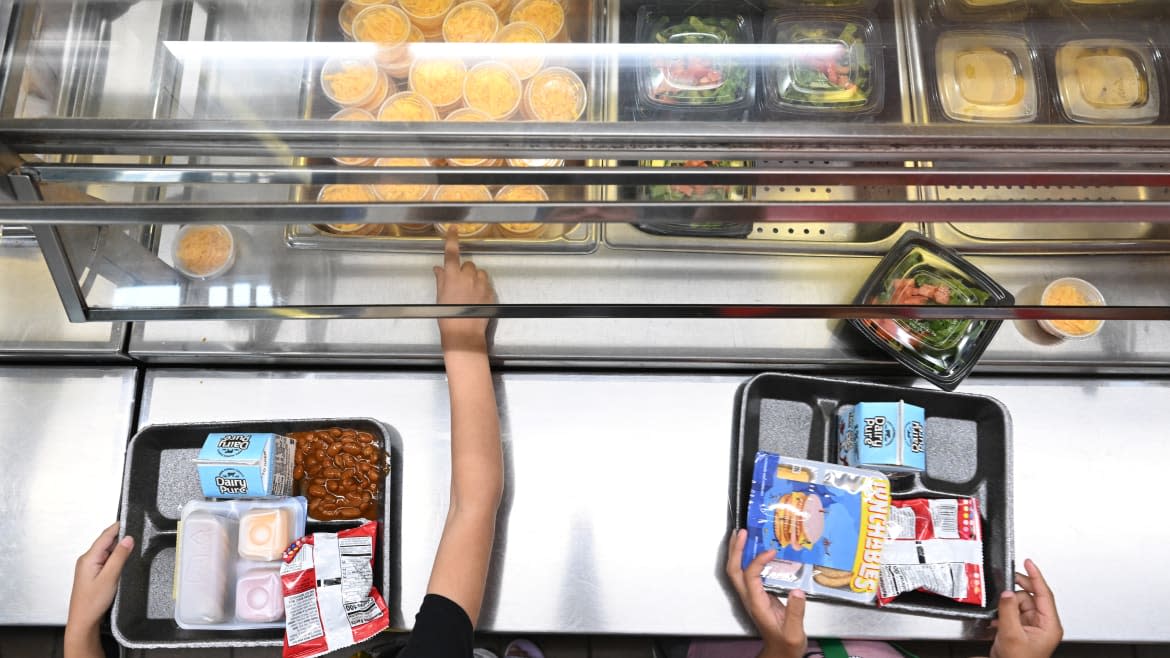Watchdog Warns That Lunchables, Now Available in Schools, Contain Lead

Lunchables, the ready-to-eat plastic trays of lunch meats and cheeses, have some surprise ingredients: plasticizers, carcinogens, and lead.
Product-testing watchdog Consumer Reports is calling for the meal kits to be removed from the National School Lunch Program (NSLP), which started distributing them directly to students across the country at the beginning of the 2023-24 school year. The decision to implement the colorful, shiny, highly processed lunch items raised the eyebrows of many health experts.
Kraft Heinz announced its plan to put Lunchables into schools last year and agreed to alter the contents of the two of its meal kits to meet NSLP guidelines, adding more protein and grains, and reducing sugar and sodium for “improved nutrition.” Consumer Reports tested only store-bought versions of the products, alongside an array of comparable meal kits.
Of the 12 Lunchables tested by the product watchdog, all but one contained harmful phthalates, which are chemicals found in a range of products from vinyl flooring to shampoos, and are used to make plastic products more durable. While they are often called “plasticizers” in manufacturing, they are known in the medical community as “endocrine disruptors,” have long-term detrimental effects on reproductive health, and have been linked to diabetes and certain cancers. The Extra Cheesy Pizza kit was the only Lunchables option that did not contain phthalates.
Consumer Reports found “relatively high levels of cadmium and lead” in several of the Lunchables, with five of them reaching the threshold of 50 percent of what the state of California allows. Cadmium is classified as a carcinogen by the World Health Organization, and there is no safe amount of lead for a child to consume.
The Government is Still Failing Kids on School Lunches
The meals also contained an excessive amount of sodium, according to the watchdog. The 460 to 740 milligrams of sodium found in the Lunchables constitutes a quarter to a half of a child’s daily recommended allowance.
A spokesperson for Kraft Heinz told The Hill that the brand had “taken great steps to improve the nutrition profile of Lunchables.” The spokesperson added that the brand had decreased the amount of sodium in its crackers by 26 percent.
“All our foods meet strict safety standards that we happily feed to our own families. We are proud of Lunchables and stand by the quality and integrity that goes into making them,” the spokesperson said.
Consumer Reports is petitioning the USDA to remove the meal kits from schools.
“Lunchables are not a healthy option for kids and shouldn’t be allowed on the menu as part of the National School Lunch Program,” said Brian Rohholm, the organization’s director of food policy.
Get the Daily Beast's biggest scoops and scandals delivered right to your inbox. Sign up now.
Stay informed and gain unlimited access to the Daily Beast's unmatched reporting. Subscribe now.


